Special salmon law for Tasmanian harbour on political menu
Legislative ‘solutions’ to Tasmania’s salmon standoff are on the political menu, but industry just wants Tanya Plibersek to do her job.
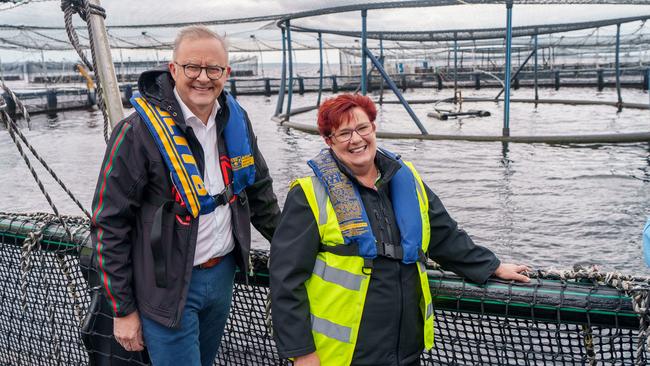
Both sides of politics are understood to be considering special legislation to ensure Tanya Plibersek cannot shut down salmon farms in Tasmania’s Macquarie Harbour, but industry says the move is not necessary and potentially damaging.
The $1.4bn salmon trade believes Anthony Albanese is examining options to get around a Plibersek-imposed shutdown of operations in the remote western Tasmanian harbour.
On Friday, the Prime Minister would not rule out the extraordinary move and stood by a pledge to “do what’s necessary” to protect salmon jobs.
Coalition environment spokesman Jonno Duniam confirmed he was also considering legislation, in the event a Dutton government inherits a Plibersek shutdown. Options include retrospectively curtailing the ability of green groups to request the kind of review of historic approvals Ms Plibersek is undertaking into salmon farming’s 2012 approval.
Another would be Hindmarsh Island Bridge-style laws to prevent the Environment Protection and Biodiversity Conservation Act applying to salmon operations in the harbour.
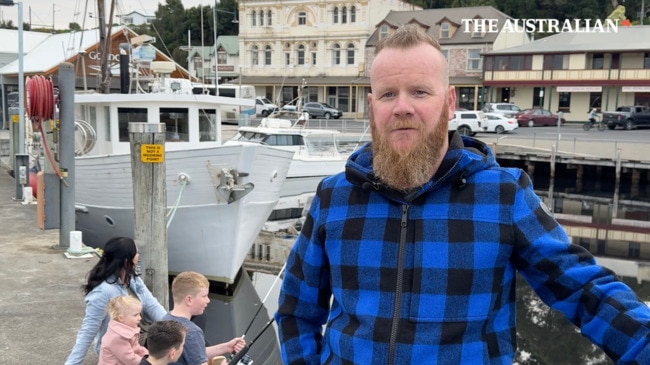
While backing broader EPBC Act reform, salmon producers firmly oppose a legislative response specific to Macquarie Harbour at this point, believing it unnecessary and likely to lead to legal battles and reputational damage. Industry feels the same about the last “workaround” suggested by Mr Albanese: Ms Plibersek using ministerial powers to exempt operations from the act.
CEOs of the three salmon producers – Tassal, Petuna and Huon Aquaculture – on Thursday wrote to Mr Albanese, telling him the solution was simple and should be enacted now, via a stroke of Ms Plibersek’s pen: a ministerial decision that aquaculture in the harbour is a “non-controlled action”.
This could require industry to comply with tougher conditions, based on water oxygen levels, but would allow operations to continue, providing immediate certainty for hundreds of jobs.
“Clearly, Australia’s environmental laws are well overdue for reform, but in terms of our situation, we’re confident the minister has the information she needs to make a decision under the current legislation,” said Salmon Tasmania chief executive Luke Martin. “We have been consistent in our representations to the government that updating its 2012 non-controlled action decision is a pragmatic, legal and reasonable outcome.”
On a visit to salmon operations in the harbour last weekend, Mr Albanese vowed to do “what’s necessary to … make sure that these jobs are able to continue”.
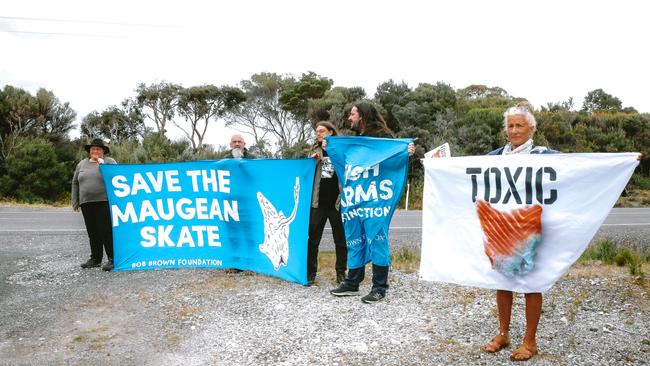
His problem is that only Ms Plibersek, whom he is accused of undermining on this issue, can legally make such a direction.
Senator Duniam said the Coalition would consider a legislative response to any shutdown. “We would ensure that salmon farming could exist in the harbour in perpetuity,” he said. “We will consider whatever options are necessary to enable that to be the case – stand-alone legislation (or) ministerial decision.”
He said Labor had rejected a recent private senator’s bill that would have restricted future reviews of the kind being undertaken on salmon. The Coalition if necessary could “go one step further” and make this retrospective, nullifying any decision by Ms Plibersek, he said.
Such legislation could be passed with bipartisan support, he said. “If you don’t like what the law is getting you to do, then change the law,” he said. “We would be party to that.”
Mr Albanese on Friday declined to rule in or out a legislative option to the standoff or to respond to the suggestion he was at war with his Environment Minister. A spokesman referred The Weekend Australian to the Prime Minister’s comments in Strahan, on the harbour, last weekend. These included that “as long as I’m Prime Minister they’ll be support for jobs here”.
More than a year ago, Ms Plibersek agreed to a request by green groups to review 2012 approvals for salmon farms in the harbour, a third of which lies inside Tasmania’s Wilderness World Heritage Area. This followed concern at an apparent halving of numbers of the endangered Maugean skate and Threatened Species Scientific Committee advice that low oxygen levels linked to fish pens were having a “catastrophic impact” on the species.
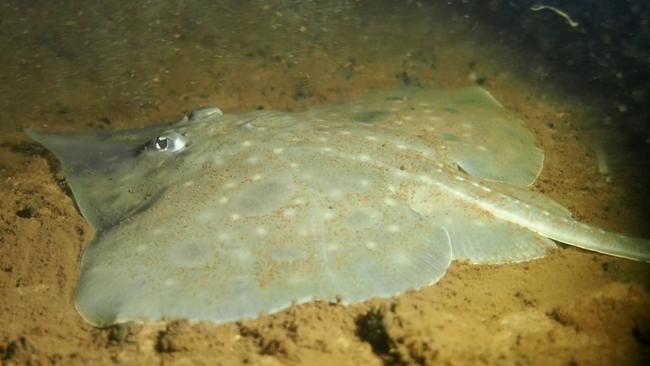
However, recent science suggests the species has stabilised at the lower numbers, and that oxygen levels, being boosted by an oxygenation trial, have improved.
Ms Plibersek, who is also considering whether the skate should be “up-listed” to critically endangered, has said she must follow a strict legislated process and will make a decision based on science and the law.
The issue has become intensely political, with a positive outcome for industry seen as key to Labor’s hopes of regaining the marginal seat of Braddon from the Liberals and holding Lyons.
However, Ms Plibersek’s own seat of Sydney is green-left leaning, and any decision seen as bad for the environment will see her and other inner city Labor MPs targeted by activists and the Greens. Polling also suggests most mainlanders want Ms Plibersek to take action to save the skate.
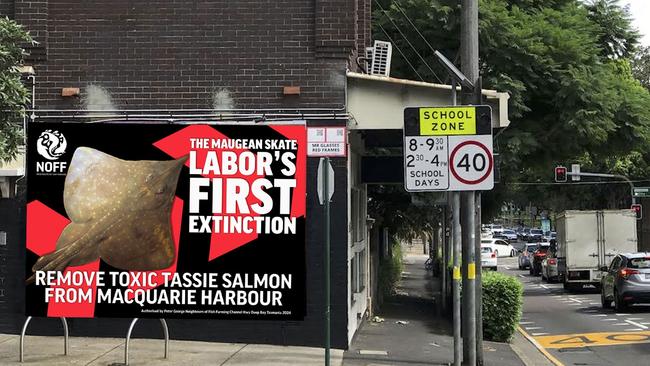
Mr Martin said Mr Albanese’s “strong statements of support for the industry” were welcome but the simple solution was a non-controlled action declaration.
“We have absolute confidence in the science and environmental monitoring clearly demonstrating that the existing regulatory framework is effective and a non-controlled action decision should stand,” he said.


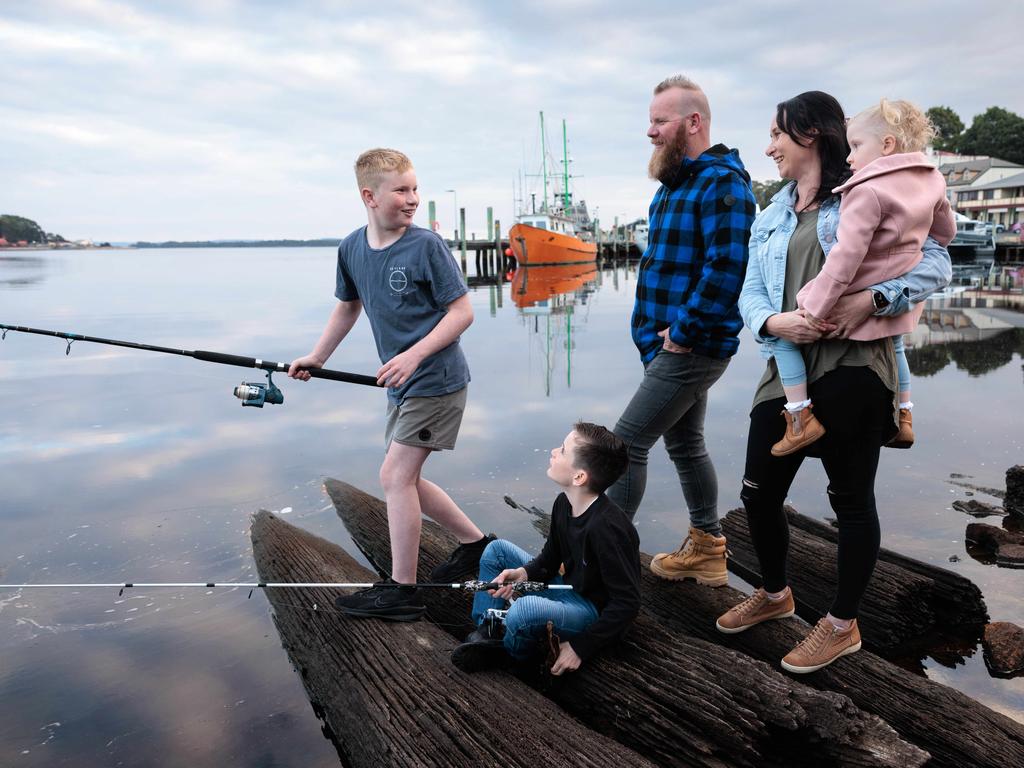
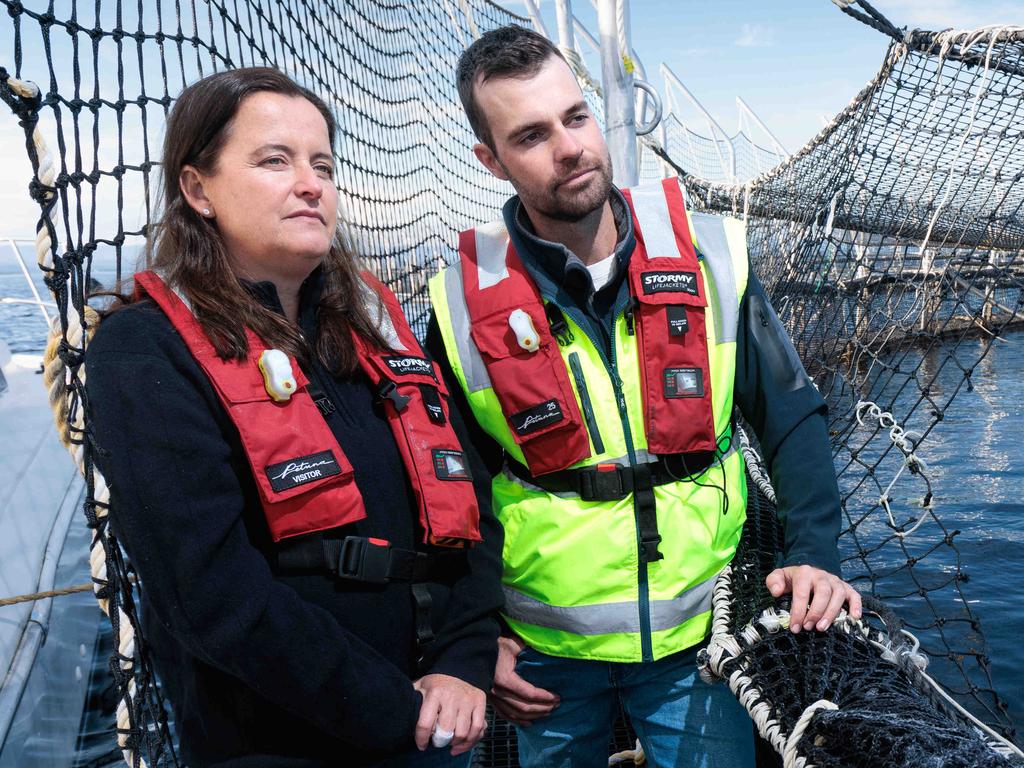


To join the conversation, please log in. Don't have an account? Register
Join the conversation, you are commenting as Logout